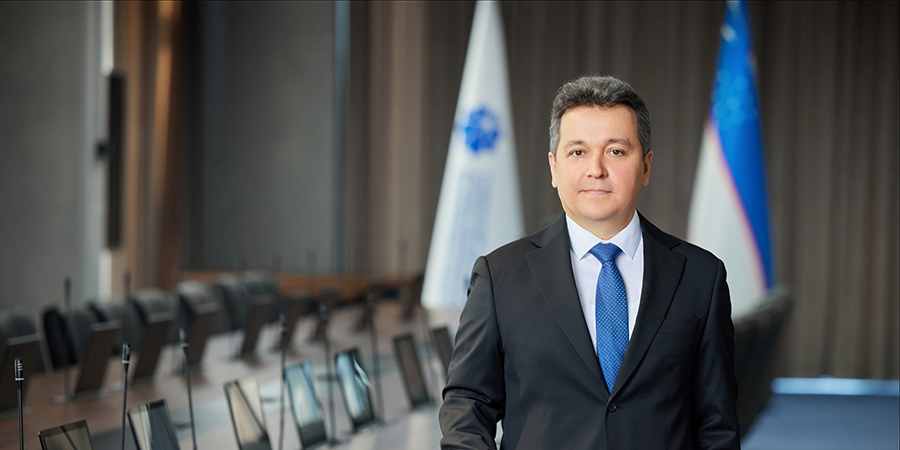During a media roundtable organized by Huawei on the sidelines of MWC Barcelona 2025, Telecom Review spoke to H.E. Sherzod Shermatov, Minister of Digital Technologies of Uzbekistan, regarding the implementation of digital technologies in various sectors and social spheres, the modernization of information and communication technology (ICT) infrastructure, and the integration of artificial intelligence (AI), in Uzbekistan.
Modernizing Digital Infrastructure
When asked how the Ministry is cooperating with telecom operators and vendors to modernize the country’s digital infrastructure, Mr. Shermatov responded by stating that, as a ministry, they are trying to collaborate with all operators and vendors. They systematically meet with them, review international trends and work to solve issues while promoting cooperation. Over the past several years, they have resolved many challenges faced by operators, such as access to shared infrastructure, both active and passive sharing, and access to new frequency bandwidth. Additionally, they have worked to avoid potential problems with neighboring countries that use the same frequencies for mobile communications, as some still use them for broadcasting. As a regulator, the Ministry serves operators to ensure their growth, which is proving successful.
Mr. Shermatov shared that, during a recent discussion with Ookla, they were reminded that Uzbekistan’s ranking for mobile internet speed has improved by 65 positions over the past four years. This progress is due to their commitment to listening to operators and vendors, addressing their concerns, and finding innovative solutions.
He credited this success to the president’s vision to transform Uzbekistan into an IT hub has led to national infrastructure development, increased internet access, and reduced internet costs. Uzbekistan is rapidly emerging as a key player in the global IT industry, with substantial government support, a growing talent pool, and an expanding digital infrastructure. The nation’s technology sector is experiencing unprecedented growth, attracting both domestic and international investors seeking to capitalize on its dynamic business environment. Since 2017, the cost of internal internet has decreased 40 times, making it more affordable. Now, they are working to attract IT companies to Uzbekistan and establish the country as an IT outsourcing destination. In 2017, there were fewer than ten IT companies with foreign capital; today, over 30 new companies open offices each month, and the number of foreign capital-backed ICT companies exceeds 1,000.
An Environment Conducive to Growth
These companies continue to establish themselves in Uzbekistan because the Ministry has kept its promise to provide the best treatment. IT companies are exempt from all taxes, and their employees pay lower taxes than others. Beyond tax benefits, the government is systematically reforming the education system to create an affordable and skilled talent pool. Investments in early education have gained significant dividends. Schools are now connected with fiber-optic broadband, achieving high-speed internet, and teaching capacity in foreign languages and IT has improved. Higher education accessibility has increased from 9% in 2017 to a level where all graduate students can pursue higher education. Additionally, the government subsidizes IT education, and there are now over 500 private IT companies.
Moreover, Uzbekistan ranks number one globally in the share of active learners on Coursera, according to the latest Global Skills Report. Companies are not only attracted by tax benefits but also by Uzbekistan’s comprehensive approach to fostering an IT ecosystem, including the promise of a streamlined business setup, office space availability, and ongoing communication to meet their demands.
Leveraging AI for Resiliency
When asked about how the Ministry is leveraging AI to build a resilient ICT ecosystem, Mr. Shermatov acknowledged that AI is a hot industry topic, and everyone is seeking ways to maximize returns on investment (ROI). He noted that the main theme of the GSMA at MWC is the challenge of increasing revenue while capital expenditure (CapEx) rises. AI is being used to improve efficiencies in various areas, including infrastructure management. For instance, an advanced data center built by Huawei in the region has helped government agencies reduce capital expenditure by optimizing data center expenses. Similarly, AI is being leveraged to decrease capital expenditure across different sectors.
Shermatov highlighted Uzbekistan’s national AI initiative, MyID, a locally developed facial recognition system that is the only iBeta-certified system in the region. It is used by all banks and enhances banking and government services. Furthermore, AI is being implemented in large language models (LLMs) to improve access to the national legislative database with the support of legal experts. Currently, the Ministry is working on approximately 100 AI implementation projects, but the most crucial question remains: how can AI improve people’s lives and increase their income?
As an aspiring IT hub, Uzbekistan aims to use AI to empower IT companies, create more opportunities, and generate high-paying jobs.
